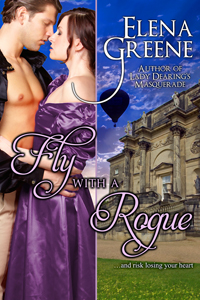Welcome (back), Blythe Gifford
 In The Master's Bed
In The Master's Bedby Blythe Gifford
Available Now!
She's disguised as a man in a place where women are forbidden. Now, she's met a man who, for the first time, makes her want to be a woman. What will happen when he discovers her secret and she's discovered IN THE MASTER'S BED?
Welcome Blythe! This is your fourth, fourteenth century medieval. IN The MASTER’S BED is set in
The book is a spinoff from The HARLOT’S DAUGHTER. It’s the story of the sister, or the harlot’s other daughter, as I like to say. I knew I did not want a large gap between the stories, so this one starts just after the epilog of the previous book.
The location, however, did change. I knew I wanted Jane, my heroine, to run away disguised as a boy to study at University, but I originally planned for her to go to
Anything about the setting that constrained you or that you had to plot carefully around?
First, because I incorporated real events (the Battle of Otterburn, the Parliament in
In addition, I tried to be very conscious of the academic year and the daily schedule. Lectures started at 6 a.m. and as a master, my hero had to be up before that to unlock the church for morning worship. I was careful of the starting and ending dates for the terms and vacations, too, as well as the requirements and accomplishments for students at each level of study.
Not a plot constraint, but a character challenge was the search for a way to portray the medieval attitude toward women. I reined in some of the accuracy so as not to offend modern sensibilities.
Anything you flat-out altered or “fudged”? If so, why?
Absolutely! The University at that time was still largely a religious, not a secular, institution. To be a master, as my hero is, you had to take “minor orders” and wear a tonsure. If you’ve seen the pictures of monks at that time, that’s the funny hairdo with the shaved head and the fringe around it. I flat out fudged that one and let my hero keep his hair! Minor orders, fortunately, did not commit him to celibacy, so I did not have to fudge that.
Tell us a little about your hero.
Since my heroine had appeared in a previous book, I knew her story well. She was inspired by a real person, the illegitimate daughter of King Edward III of
How about something fun, like his favorite childhood pet, or his first kiss.
My hero plays the guitar, or, as it was called then, the gittern. That comes in handy when rowdy young students want to sing drinking songs, but it is also a window to his character and a wonderfully romantic way for him to relate to the heroine.
In your research, did you stumble across anything really interesting that you didn’t already know?
Always! Even though this is my fourth book set in the 14th century, I had much to learn about this particular period and medieval
· In 1381, just seven years before my story is set, the
· Students at medieval universities throughout
·
· There were seven “liberal arts” studied at University. The first three were called the trivium. Hence, trivia. “Cursory” lectures consisted of the master reading aloud from a book, a necessary and efficient way to transmit information when books were scarce.
What are you working on next?
Interestingly, researching this book lead me to my next. Learning about the “north land,” I became intrigued with life on the border of
Thank you for having me here. It’s a pleasure to visit the History Hoydens again. And I invite readers to visit my website, www.blythegifford.com, and check out my schedule. This is just one stop on my “Blog until you Drop” tour and I’d love to have company!



Comments
Post a Comment